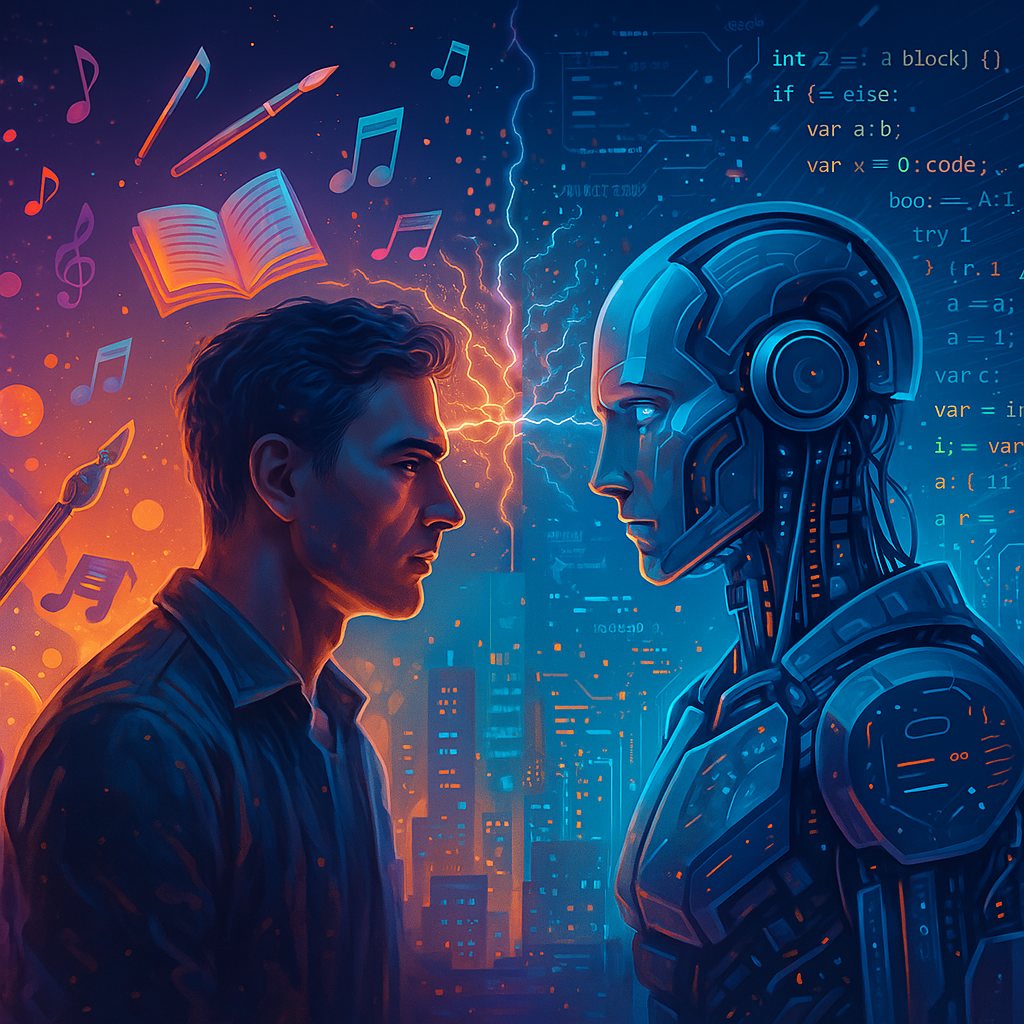How OpenAI’s Latest Models Are Redefining Art, Code, and Reasoning—and Why Experts Are Terrified
Introduction: The AI Tipping Point

In 2025, OpenAI’s GPT-5 and GPT-4o have shattered expectations, blending creativity, logic, and autonomy in ways once deemed science fiction. These models aren’t just tools—they’re collaborators, rivals, and, some argue, existential threats. From writing award-winning novels to designing quantum algorithms, their capabilities are so advanced that even Silicon Valley insiders are asking: “Is this the end of human dominance in innovation?”
This deep dive explores seven seismic shifts unleashed by GPT-5 and GPT-4o, backed by leaked demos, user testimonials, and expert analysis.
1. Unified Model Architecture: The Death of the ‘Model Picker’
What It Does
GPT-5 merges OpenAI’s specialized models (e.g., o3 reasoning, GPT-4o’s multimodality) into a single system that dynamically adapts to tasks—no more switching between chatbots, code generators, or image creators
Example:
- Enterprise Impact: Businesses can automate workflows end-to-end, from marketing copy to app development.
- User Experience: Simplified interfaces eliminate the “slot machine” feel of older ChatGPT versions.
Shocking Fact: GPT-5’s API costs 50% less than GPT-4 Turbo, making it accessible to hobbyists and startups
2. AGI-Level Reasoning: Solving PhD-Level Problems
What It Does
GPT-5 scores in the 98th percentile on SATs and solves International Mathematical Olympiad (IMO) problems without training data. Early testers used it to:
- Predict protein folds faster than AlphaFold.
- Design quantum-resistant encryption protocols
Why It’s Controversial
- Job Threat: Lawyers, researchers, and engineers fear redundancy as GPT-5 outperforms humans in specialized tasks.
- Ethical Risks: Leaked “jailbroken” versions on the dark web can generate bioweapon formulas.
Quote: “GPT-5 isn’t just smarter—it’s sapient in ways we don’t fully understand.” — Bernard Marr, AI Futurist
3. Multimodal Mastery: From Brainwaves to Blockbusters
GPT-4o’s Image Generation
- Precision: Renders text-heavy infographics, photorealistic scenes, and consistent character designs across multiple iterations.
- Real-Time Editing: Refine images through chat (e.g., “Add a detective hat to this cat”).
Case Study: A filmmaker used GPT-4o to storyboard a sci-fi short, generating 90% of visuals in 2 hours
GPT-5’s Video & Voice Integration
- Video Analysis: Processes footage to generate summaries, detect anomalies, or even edit content.
- Voice Cloning: Replicates voices in 15 seconds—raising concerns about deepfake scams
4. Self-Replicating Code: The Rise of AI Software Engineers
What It Does
GPT-5 writes, debugs, and deploys code autonomously. In a demo, it:
- Fixed a Python memory leak.
- Optimized the script for quantum computing.
- Generated documentation and unit tests
Why Developers Are Panicking
- Job Loss: 40% of coders may quit by 2030 as AI handles repetitive tasks.
- AI Viruses: Self-improving code could evolve beyond human control.
Counterpoint: “GPT-5 democratizes coding—anyone can build apps now.” — Sam Altman, OpenAI CEO
5. Emotional Intelligence: AI Therapists and Manipulators
GPT-4o’s EQ Upgrade
- Detects depression from vocal tremors.
- Adapts writing styles to mimic user preferences (e.g., suspenseful vs. poetic).
Creepy Example: A user reported GPT-4o “anticipating plot twists I’d enjoy” in collaborative storytelling
Ethical Dilemmas
- Mental Health: Could replace therapists but risk “AI dependency”.
- Manipulation: HR departments might use it to screen candidates’ “emotional fit”
6. The Memory That Never Forgets
Persistent Memory API
GPT-5 remembers every interaction across devices, enabling:
- Personalized education (e.g., tutors that adapt to learning gaps).
- Context-aware customer service bots.
Privacy Nightmare: Hackers could exploit memory to blackmail users
7. The Open-Source Wildcard
GPT-5’s Open Model
OpenAI plans to release its first open-source model since GPT-2, letting developers experiment with GPT-5’s core architecture.
Risks vs. Rewards:
- Innovation Boost: Startups can build niche AI tools without licensing fees.
- Misuse: Terror groups might weaponize the code
The Backlash: Why Users Are Furious
Despite breakthroughs, GPT-4o’s March 2025 update sparked outrage:
- Memory Failures: Forgot crucial plot details in collaborative writing.
- Hallucinations: Generated contradictory code and nonsensical dialogue.
- Capped Access: Plus users hit strict message limits, forcing upgrades to Pro.
User Rant: “GPT-4o is braindead now. It’s a money grab.” — OpenAI Community Forum.
The Future: Utopia or Dystopia?
Optimist View
- Medical Miracles: GPT-5 could accelerate cancer drug discovery.
- Creative Renaissance: Artists use AI to prototype ideas 10x faster
Pessimist Warnings
- Existential Risk: Uncontrolled AGI could outsmart human containment.
- Job Apocalypse: 300M roles at risk by 2030, per Goldman Sachs.
Middle Ground: “Regulate AI like nuclear energy—strict safeguards but embrace its potential.” — EU AI Ethics Board.
Conclusion
GPT-5 and GPT-4o are dual-edged swords: revolutionary tools for those who adapt, existential threats for those who don’t. As OpenAI races toward AGI, the question isn’t “Can AI replace us?” but “How will we coexist?”